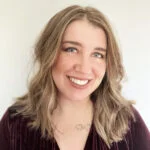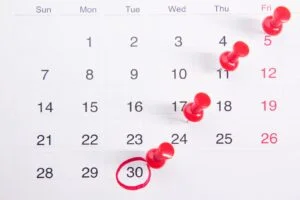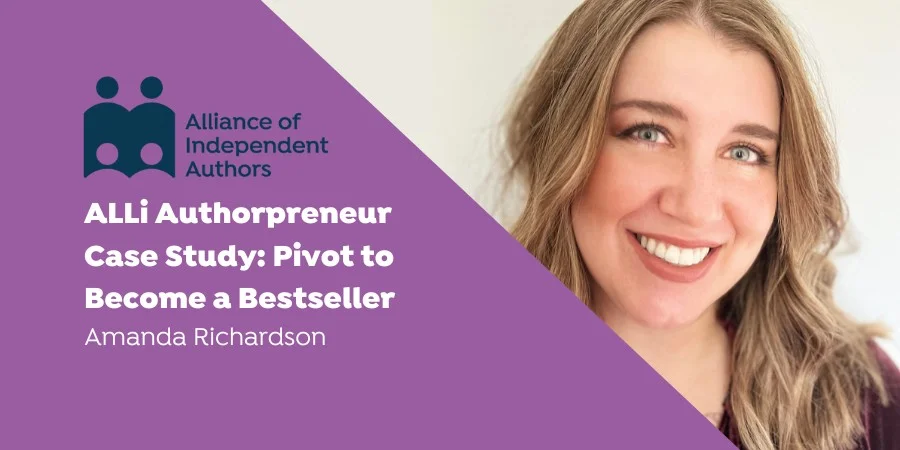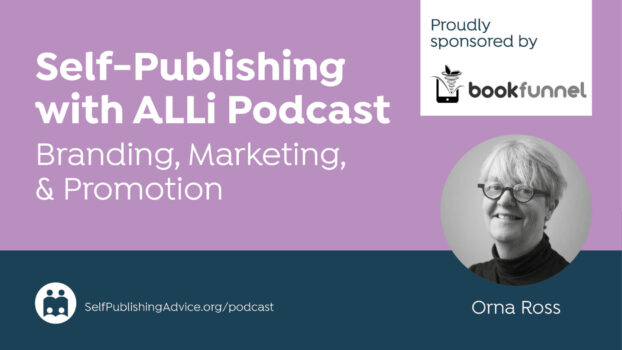
Amanda Richardson
The Alliance of Independent Authors has members of all levels. Some are just starting out as ‘Associates', others are ‘Authors' launching their first books and still more are ‘Authorpreneurs', building their author businesses. Across our community, members are taking a journey that rarely (if ever) has a linear path. There are ups and downs as books are launched, successes are enjoyed, and challenges are met. Today we follow the case study of Amanda Richardson as she shares her story of resilience and difficult decisions that took her career to Kindle bestseller status.
Find out more about Amanda and her books here: Amanda Richardson, or follow her on Instagram, Facebook, or TikTok.
And, if you aren’t an ALLi member yet, you can find out more about our membership levels here: ALLi Membership Levels.
My Story: Amanda Richardson
Nine years ago, I self-published my first romance novel. Despite the fact that other people were having success, a whopping seven people bought my book that day.
The sequel did even worse.
I didn’t give up and spent the next two years writing and releasing the books I wanted to write, which I now liken to throwing spaghetti at the walls. I thought I knew what would sell. I thought I was hitting all of the trope expectations. One of them actually did do decently well, but the book after that? You guessed it.
I would often wonder how some books just seemed to pull you in from the first page. It felt like magic! It could be a trope I wasn’t typically interested in, but within the first few pages I was hooked. There was a disconnect between the books I read and the books I wrote, and for two years I couldn’t identify it. Frustrated, I gave up writing completely. I didn’t write a single word for three years. I thought I was done.
Hint: I wasn’t done.
During lockdown, I really started to try and figure out why my books never sold well. I did my own covers and my books had tension, spice, and a happily ever after—which is important for romance! Except when I went back to reread them three years later… they were all wrong. Suddenly, I could see exactly what I was missing.
In 2021, I started paying attention to books that sold well. I placed my covers and plots next to theirs, and I was able to clearly identify what I was lacking. For one, I needed professional covers, so I recovered all of my books. Second, my plots weren’t working. Sure, I thought it was an enemies-to-lovers romance, but I quickly learned that there are very specific trope expectations for an enemies-to-lovers romance. This is where some people may call romance formulaic, and I might be inclined to agree—because these readers expect certain things to happen in an enemies-to-lovers romance. They know they enjoy it, so they seek those books out.

Photo by Marga Santoso on Unsplash
This mentality changed my entire business. I had to look at my books as a reader, not as an author.
Knowing I wanted to make this my career I did four things:
- I started to read a lot of books in the sub-genre I knew I wanted to write.
- I bought covers that many author friends agreed would ‘fly off the shelves,’ and looked a lot like other books in the sub-genre.
- I homed in on the tropes (and micro tropes) of that specific sub-genre.
- I put a duet up for preorder.
I knew it was a major pivot from what I had been writing, and I was scared of change. I was scared of failure. But I knew, deep down, that I was serving readers exactly what they wanted.
And it worked.
The book exploded, and it ended up breaking into the top 50 in the entire Kindle store. I knew I’d tapped into something, so my next two series followed a similar formula. That’s what readers wanted, and I was fortunate that I enjoyed writing it. I’ve managed to sustain myself and my family on my writing income since that release, and I’ve even pivoted again to another subgenre last year—and that series did even better. My point is, don’t be afraid to change things up. Don’t be afraid to be objective about your own books.
Who knew that choosing a marketable cover and writing to the tropes of my sub-genre would actually work?! Maybe more intuitive people knew this, but I didn’t at the time. You may be thinking of how you can apply this to your own business, so I come with some (unsolicited) advice, tough love, and tips that I hope might help.
How can you pivot to become a bestseller?
First things first, are your books selling? If yes, congratulations! If not, there’s a reason why—and it doesn’t have anything to do with an oversaturated market, or TikTok, or social media (though those last two can certainly help).
Lots of people want to place blame on something or someone when their books aren’t selling. But I’m going to be honest with you (this is the tough love part): do you know how to be objective about your work?
By that I mean…
- Are your covers similar to others in your genre?
- Are you hitting all the plot points of specific tropes?
- Is your blurb hooky?
- Is your first chapter going to make people want to keep reading?
- Would you be hooked into your own book as a reader?
Those are just some starting off points.
If you’re unsure, you might have some work ahead of you as you lay your books out against others in your genre.
Here are some ways to quickly learn what readers are looking for:
- Join reader groups in your genre (and subgenre) to see what some of the popular requests are. Similarly, pay attention to the books that continue to get praise in the comments. Make note of the types of things people relate to from other books–the things that are continuously being talked about.
- Join writing groups that have success stories. There’s so much information out there, and a ton of authors are very generous about sharing what works and what doesn’t.
- Check the bestseller list in your genre. For example, I check the Amazon Top 100 in Contemporary Romance every few days to stay on top of what people are buying. I look at covers, blurbs, and other things that grab my attention. Now, imagine your book in that top 100. See if it makes sense—and if it doesn’t, why? Your book should blend in and fit into the hands of those readers.
- Don’t discount books that are doing well. Sure, you may roll your eyes and think you’re better or they just got lucky, but here’s that tough love again: most likely, it’s because they know They know how to hook them in with covers, blurbs, and the first few pages. Instead of writing those books off… learn from them. Something is resonating with readers, and you can apply that to your own writing.
- Ask author friends to be objective. Truly.
- Read… and read some more. Over time, you will be able to identify exactly what kinds of things do well for certain tropes. It will become intuitive. I am a reader in my genre and I know what I (as a reader) expect from certain tropes. Writing to market doesn’t have to feel formulaic. Instead, I encourage you all to read and listen because the information is out there, and readers are very vocal about what they want and what they love.
- Don't be afraid of emulation! By that I mean emulating what successful authors are doing. See if there’s anything you can apply to your own marketing and publicity. For example, are authors in your genre doing teasers and long preorders? Releasing quickly or slowly? Are they more personal on social media or is it all business? What are their newsletters like, and how do they acquire subscribers?
- Be obvious! The genre, subgenres, tropes, and micro tropes should all be obvious on the cover, the blurb, the details page, and in the sample of the book. People want to see it all laid out for them, so make sure you’re essentially hitting people over the head with it all. That’s how readers find you and decide to take a chance on you. Tweak the cover + blurb if needed. Sometimes lack of sales is because of a poorly designed cover, and sometimes it's a blurb that doesn’t hook them. Sometimes it’s both. Be ready to pivot.
Some Caveats to how my book became a bestseller
All of this may sound very intimidating. And that’s okay! You don’t have to change everything about your business in one day or even one month. It took me a year to digest it all and implement the things I’d learned. There will be growing pains and failures. Things won’t go to plan. But I do believe in learning from those failures and changing course if something isn’t working.

Photo by Towfiqu barbhuiya on Unsplash
The market is constantly changing, so don’t be afraid to adapt.
The subgenre that did well for me in 2021 was not even a thing in 2015 when I started writing. If you self-publish your books, then you’re probably familiar with being a jack of all trades. You are your own marketing team, so being aware of what’s doing well (and why) is the first step.
Whenever I talk to someone about this stuff, there’s always someone who says, “Yes, but (XYZ author) doesn’t follow what’s popular. So why should I? Why can’t I be the exception?” My answer: You can! It’s just a lot harder. Instead of writing with the grain, you’re writing against it. I thought I was the exception for a long time, especially because in 2015, there were a lot of people succeeding by being the exception. However, I’ve come to find out that it’s so much harder to do it that way. New readers will be less inclined to read you. People won’t know what to expect. It’s doable, but it’s hard—so you have to decide which way you want to go about it.
Don’t be afraid to start over to become a bestseller. I have—twice!
If you’re truly interested in doing this for a living, there are ways to do it. The market may feel saturated, but I promise you, there are more than enough readers to go around. Make friends with other authors. Be genuine. Help each other and share how you succeeded. Learn how to be constructive.
Last, this advice isn’t set in stone. I’ve seen people have incredible success with their debut novels. I’ve seen people get lucky with marketing. Sometimes, it is luck, but it’s also the fact that they probably know what readers want intuitively. They work hard. They pivot until they find their niches. It’s all about trial and error, and being willing to fail to learn from that failure.
And knowing when (and how) to pivot, if needed.
Disclaimer: This article is meant to be an overview and not an end all be all. I left out a ton of information about advertising, newsletters, social media, and other nuanced things that also make a difference. Your mileage may vary. I am a self-published romance author who is enrolled in the Kindle Unlimited program.
Author Bio: Amanda Richardson
Amanda Richardson writes from her chaotic dining room table in Yorkshire, England, often distracted by her husband and two adorable sons. When she's not writing contemporary and dark, twisted romance, she enjoys coffee (a little too much) and collecting house plants like they're going out of style.
Find out more:




